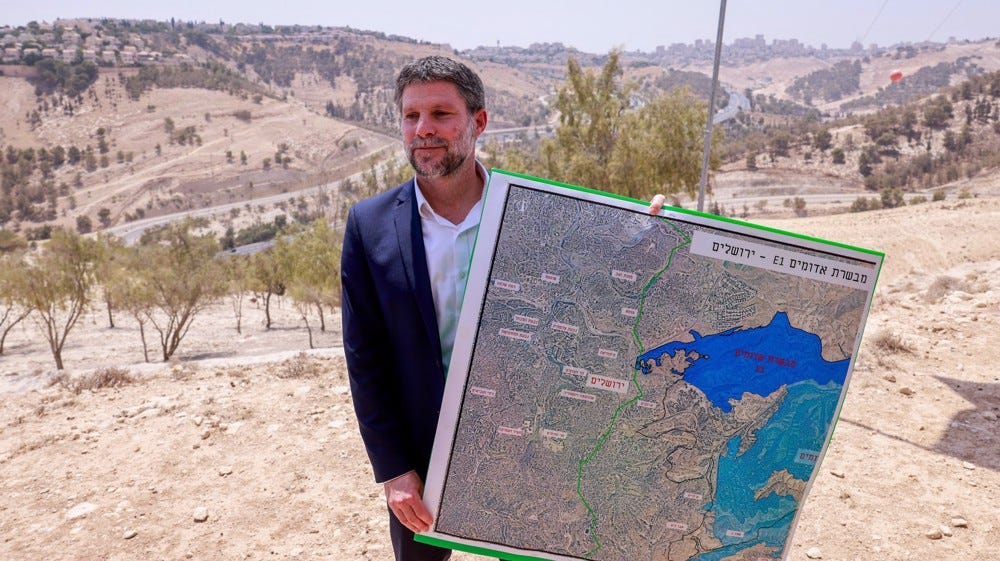Israeli Minister Revives Controversial E1 Settlement Plan, Threatening Future Palestinian State
Bezalel Smotrich pushes forward with over 3,000 settler units in occupied West Bank despite global opposition and ICJ ruling

West Bank, PURWILAYAH.COM - Extremist Israeli finance minister Bezalel Smotrich has announced plans to approve the construction of more than 3,000 settler units in the highly contested E1 area of the occupied West Bank — a move widely seen as the final blow to the prospect of an independent Palestinian state.
The project, which aims to connect the Maale Adumim settlement to occupied East al-Quds (Jerusalem), has faced decades of international opposition due to its strategic impact on Palestinian territorial continuity. Critics warn that the E1 expansion would sever East al-Quds from much of the West Bank, forcing Palestinians into lengthy detours between cities and isolating communities from one another.
“Approval of construction plans in E1 buries the idea of a Palestinian state,” Smotrich declared, calling the move part of a “de facto sovereignty plan” designed to entrench Israeli control over the occupied territories. He described the expansion as “Zionism at its best — building, settling, and strengthening our sovereignty.”
The announcement comes shortly after France, Britain, Canada, and Australia signaled their intent to recognize a Palestinian state during next month’s United Nations General Assembly — a move Smotrich’s decision appears to directly counter.
The E1 plan, first proposed in the 1990s, has repeatedly stalled due to pressure from the international community. In March, Israel’s political-security cabinet approved a separate Palestinian roadway south of the E1 zone, linking the northern and southern West Bank — a step widely seen as paving the way for settlement growth in the area.
Currently, more than 700,000 Israeli settlers live in over 230 settlements established since the 1967 occupation of the West Bank and East al-Quds. These settlements are deemed illegal under international law and the Geneva Conventions, and the UN Security Council has repeatedly condemned Israel’s settlement activities in official resolutions.
In July 2024, the International Court of Justice (ICJ) ruled Israel’s decades-long occupation of historical Palestine to be illegal and called for the evacuation of all settlements in the West Bank and East al-Quds — a demand that, so far, has had no practical effect.
With Smotrich’s revival of the E1 project, the gap between international law and on-the-ground realities appears wider than ever. (PW)
Source: The Cradle

